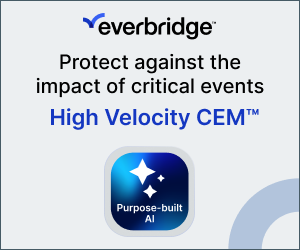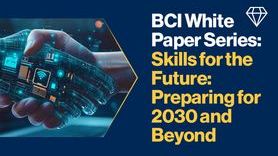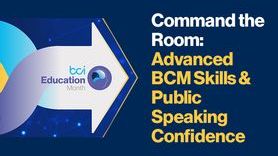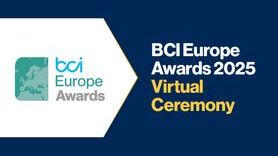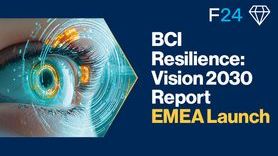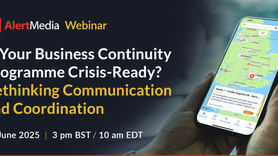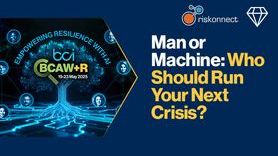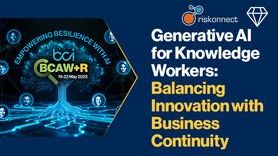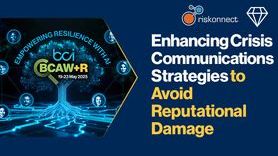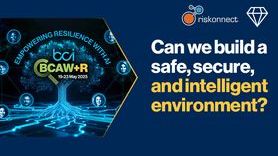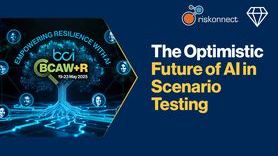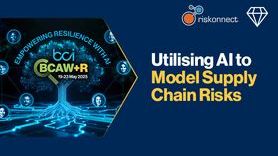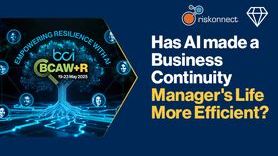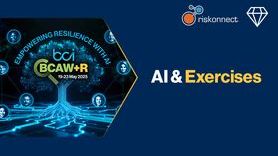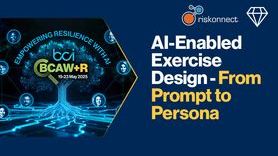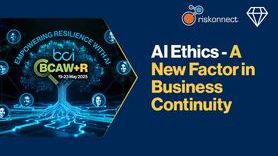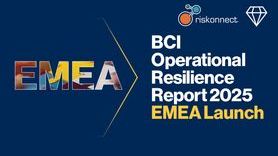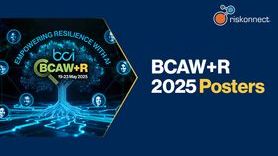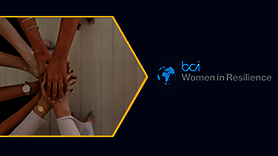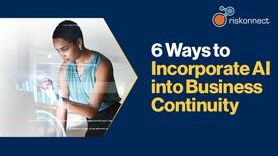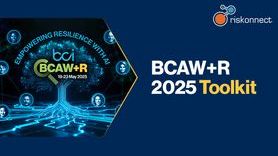In Conversation with Padmashree Prasad, VP of Resilience
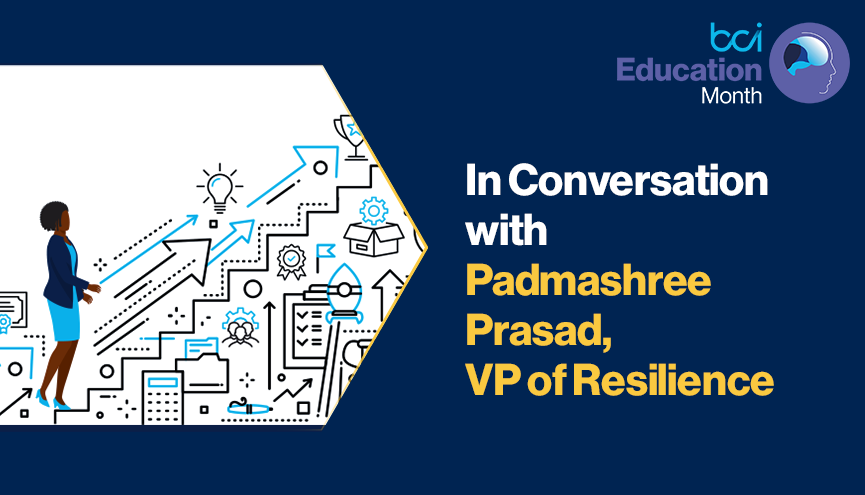
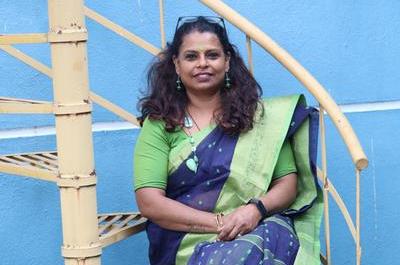
In this interview, we talked to Padmashree Prasad, VP of Resilience at Barclays (India), about her experience in the Business Continuity (BC) and Resilience sector, and how to introduce new talent into the industry.
Can you tell us about your experience in the field of BC and resilience?
I’ve always said that I was designed for this domain. My personal journey is one filled with incidents and events, and speaks to the concept of resilience which I applied way before the words BC or resilience became popular. My experience has been amazing, coming across many varied mindsets which all still have the common thought of “It’s never going to happen”. Instead, given my own personal journey, I always felt “This too can happen” and wanted to introduce this to every mindset.
I also came up with a quote which says “It’s all in the mind”. We can either live in denial or get up and try to bring about that change. It has been my constant effort to make people (professional and personal) understand that BC/Resilience is a ‘Way of Life’. Once we build this mindset, it is a lot easier to respond to any expected or unexpected situations.
In an ever-changing environment, how important are training and education to make sure that you are prepared for newly emerging threats and risks?
Training and education has always been crucial and will remain so, as one needs to keep evolving in this dynamic and volatile world. We always need to be in a state of preparedness for the unforeseen because we don’t know when disaster will strike. Everyone, be it leader or employee, has an equal role to play in being aware and prepared. This preparedness comes with good training and education, and ultimately helps the organization be resilient to emerging threats and risks.
What role have educational resources & BC training played in your career?
Education is important as it teaches the concept of Resilience. Simple proverbs that we grew up listening to, such as ‘A Stitch in Time Saves Nine’, ‘Make Hay while the Sun Shines’, can also be linked to BC and Resilience. Both of these proverbs speak so explicitly about being resilient. Here, a stitch could represent having your risk assessments ready and up-to-date. Making hay means having your plans and assessments ready during business as usual, so that the organization is ready to face any eventuality when disaster strikes.
Training is equally important. Training has to be designed in such a way that people can connect BC with Life Continuity, as there isn’t much difference between the two. We apply resilience concepts to our lives in so many ways. The simple habit of saving money helps us be prepared for the future. Training should touch upon these simple yet impactful examples to help build that mindset for everyone.
As an experienced BC practitioner, what skills would you say are important to build in this sector? What skills are you looking to reinforce/acquire in the future?
- A change in mindset is key to helping this sector bring in more professionals. There is a laid-back mindset wherein we wait for something to happen to wake us up. Normally, seeing is believing, but that has to change
- Agility is also key. We need to be alert at all times. Be aware of what’s happening around us and be prepared to respond if the same happened to us
- The ability to listen and debate. Many organizations were in denial that anything like the COVID pandemic could happen. However, when it did happen, organizations woke up and claimed it was a Black Swan event, while there were studies showing similar incidents in the past. When proposals are made to enhance the programme, the ability to listen and have a healthy debate is essential to come up with realistic decisions
- The ability to accept gaps and flaws goes a long way in the survival of the organization through the most disastrous incident.
How important is it to share experience and knowledge with other BC practitioners, as well as with those just entering the industry? What are the most effective ways to do this?
If the world is to become resilient, it’s imperative for each of us to share experience and knowledge with others (I would say even with non-BC practitioners as we could influence a non-BC practitioner to become one). We need more and more people who understand BC in its true sense. One of the best ways to begin this is at home. We talk about so many other things, why not about BC or Resilience? Home is the first school, so begin there.
Don’t we all apply BC principles in our lives too? We are all designed to be resilient (two hands, two legs, two eyes, two lungs, etc.) The knowledge of BC should go beyond the corporate zone and enter every area (schools, colleges, public places, etc.) We need to be innovative and creative to spread the message out there.
What are the pathways/opportunities available for young professionals that choose a career in BC & Resilience?
Forums, like the BCI and DRII to name a few, should also welcome non-BC professionals to be part of their seminars and conferences. Currently, it is confined to BC professionals and the numbers don’t seem to increase significantly. Many are still unaware of BC or resilience. It is important to tap into that untouched segment and spread the word. There could be many who are interested in this domain but have no clue on how to get here.
What can young professionals do to prepare themselves when joining this field from a different industry? What are organizations looking for from young professionals joining this field?
BC/resilience is pure common sense. It’s not rocket science. There are principles that we keep applying without even realising. However, professionals should be good influencers, as it is not easy to sell the concept of BC or resilience. They should also have the ability to be creative and innovative in their thoughts. Talking about stats and graphs doesn’t always work. Connect BC with Life Continuity and you will see that people become more attentive. It has to be about them. We could then see more young professionals getting into this zone.
How can BC practitioners prepare to take the next step or advance in their BC/resilience career?
Learning is key. Be open to learning. Acquire as many skills on the job as you can, meet professionals from the industry, and be part of groups and forums that share tons of knowledge. There has be constant innovation/renovation to keep the momentum going. Many times your ideas will be unheard or not accepted, so self-motivation and determination is important to keep sailing. Confidence and trusting in oneself is also pivotal.
Is there anything else you wish to share about your experience as a BC practitioner?
My journey has been amazing. It’s been filled with ups and downs, acceptance and rejections. Nonetheless, I believed in my ideology and kept moving ahead.
Learn more about Education Month 2022:
To be the first to know about BCI News and more follow us on LinkedIn here, or on Twitter @TheBCEye


